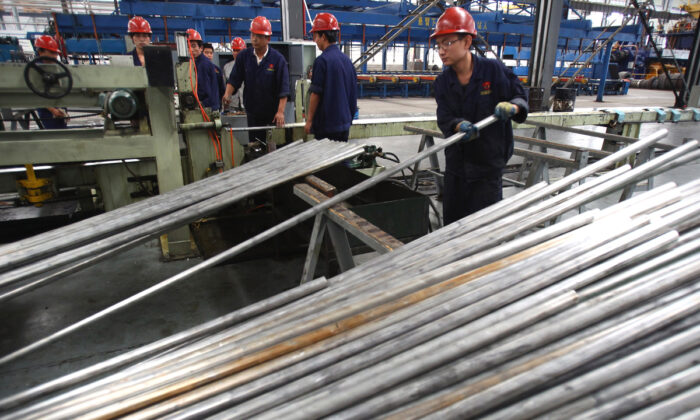Israel will implement a tariff rate as high as 146 percent on Chinese aluminum imports entering the country.
In July 2024, the Israeli government launched an investigation into evidence that 25 Chinese companies were flooding their domestic market with artificially cheap aluminum products and putting Israeli producers at a disadvantage. Officials declined to wait for the report’s conclusion and proceeded with anti-dumping levies.
The Ministry of Economic will impose tariffs on imports of aluminum profiles and rods, ranging from 61 percent to 146 percent.
United Nations data indicate that Chinese aluminum exports to Israel, including bars, foils, plates, and sheets, are worth approximately $415 million.
In a May 5 statement obtained by Israeli business newspaper Calcalist, the ministry said it would employ a “temporary guarantee” to “stop the continued damage caused to the local industry.”…
Israel Imposes Anti-Dumping Tariffs on Aluminum Imports From China

